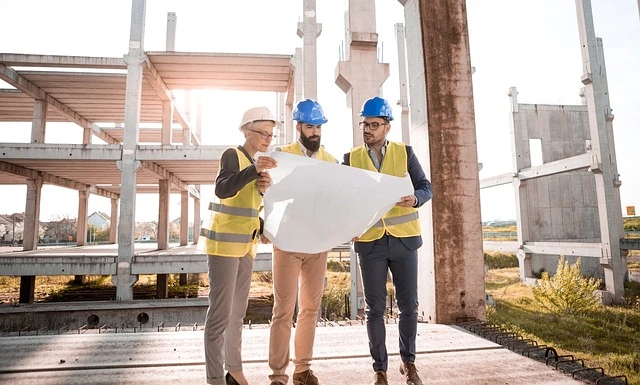Maximizing Efficiency and Profitability
How CRM and Helpdesk Systems Help Building and Construction Companies
In today's highly competitive building and construction industry, companies face numerous challenges, ranging from project management complexities to customer relationship management. To thrive in this demanding landscape, it's essential for companies to adopt innovative technologies that streamline operations, enhance customer engagement, and boost overall profitability. Customer Relationship Management (CRM) and Helpdesk systems have emerged as game-changers for companies, offering a wide array of benefits that go beyond traditional construction management tools.

Section 1: Understanding CRM for Building and Construction Companies
A. Managing Customer Data:
CRM systems centralize customer information, providing a 360-degree view of each customer. For building and construction companies, this means having access to detailed information about each project, including customer preferences, timelines, and budgets. This information can be used to optimize project management, improve communication with customers, and ensure timely completion of projects.
B. Lead Generation and Conversion:
CRM tools help building and construction companies track leads, measure conversion rates, and optimize their sales processes. By automating lead generation and conversion, companies can save time and ensure follow-ups with potential customers. This can lead to increased sales and revenue, as well as improved customer satisfaction.
C. Enhancing Customer Engagement:
Building and construction companies can use CRM systems to track customer interactions, preferences, and feedback. This data informs product development and customer support strategies, allowing companies to tailor their services to meet the unique needs of each customer. By enhancing customer engagement, companies can build stronger relationships with their customers and increase customer loyalty.
Section 2: Leveraging Helpdesk Systems for Customer Support
A. Efficient Ticket Management:
Helpdesk systems streamline ticket creation, assignment, and resolution. For building and construction companies, this means providing timely responses to customer queries and issues. By resolving customer issues quickly and efficiently, companies can improve customer satisfaction and build a positive reputation in the industry.
B. Knowledge Base Creation:
Building a knowledge base with FAQs and guides reduces the workload on support teams. Customers can find answers to common questions independently, freeing up support teams to focus on more complex issues. This can lead to increased productivity and improved customer satisfaction.
C. Multichannel Support:
Building and construction companies can offer customer support via email, chat, social media, and more through a single platform. This ensures consistent and efficient support across all channels, improving customer satisfaction and reducing the workload on support teams.
Section 3: Integration and Automation
A. Seamless Data Flow:
Integrating CRM and Helpdesk systems ensures a seamless flow of customer data. This integration enhances customer support by providing agents with comprehensive customer profiles, allowing them to provide personalized support and improve customer satisfaction.
B. Workflow Automation:
Building and construction companies can automate repetitive tasks, such as follow-up emails and ticket routing. This frees up time for strategic activities and reduces the risk of human errors, improving productivity and profitability.
Section 4: Analytics and Insights
A. Data-Driven Decision Making:
Both CRM and Helpdesk systems provide valuable analytics and reporting capabilities. Building and construction companies can make informed decisions based on customer data and support metrics, improving project management and customer engagement.
B. Performance Monitoring:
Metrics like response times, ticket resolution rates, and customer satisfaction scores help building and construction companies gauge their performance. Continuous improvement is possible through data-driven insights, leading to increased productivity and profitability.
Section 5: Scalability and Flexibility
A. Growth Readiness:
CRM and Helpdesk systems are scalable, adapting to the evolving needs of building and construction companies. They accommodate increased project volumes and expanded service offerings, allowing companies to grow and thrive in a competitive industry.
B. Cost-Efficiency:
SaaS models are cost-effective for building and construction companies, eliminating the need for extensive infrastructure and IT support. Pay-as-you-go pricing ensures companies only pay for what they use, reducing costs and improving profitability.
Section 6: Case Studies and Success Stories
A. Real-World Examples:
Explore how building and construction companies have leveraged CRM and Helpdesk systems to achieve success. Case studies demonstrate the practical impact of these tools, providing insights into how they can be used to improve productivity and profitability.
Conclusion
Building and construction companies face numerous challenges in a highly competitive industry. By adopting CRM and Helpdesk systems, companies can streamline operations, enhance customer engagement, and boost overall profitability. These systems enhance scalability, flexibility, and cost-efficiency, making them indispensable for companies looking to thrive in today's dynamic markets.
By leveraging the benefits of CRM and Helpdesk systems, building and construction companies can build strong foundations, nurture customer loyalty, and ultimately pave the way for long-term success.